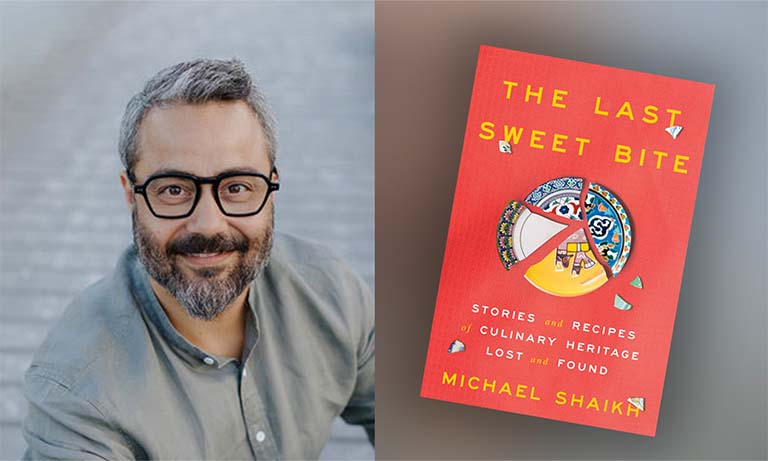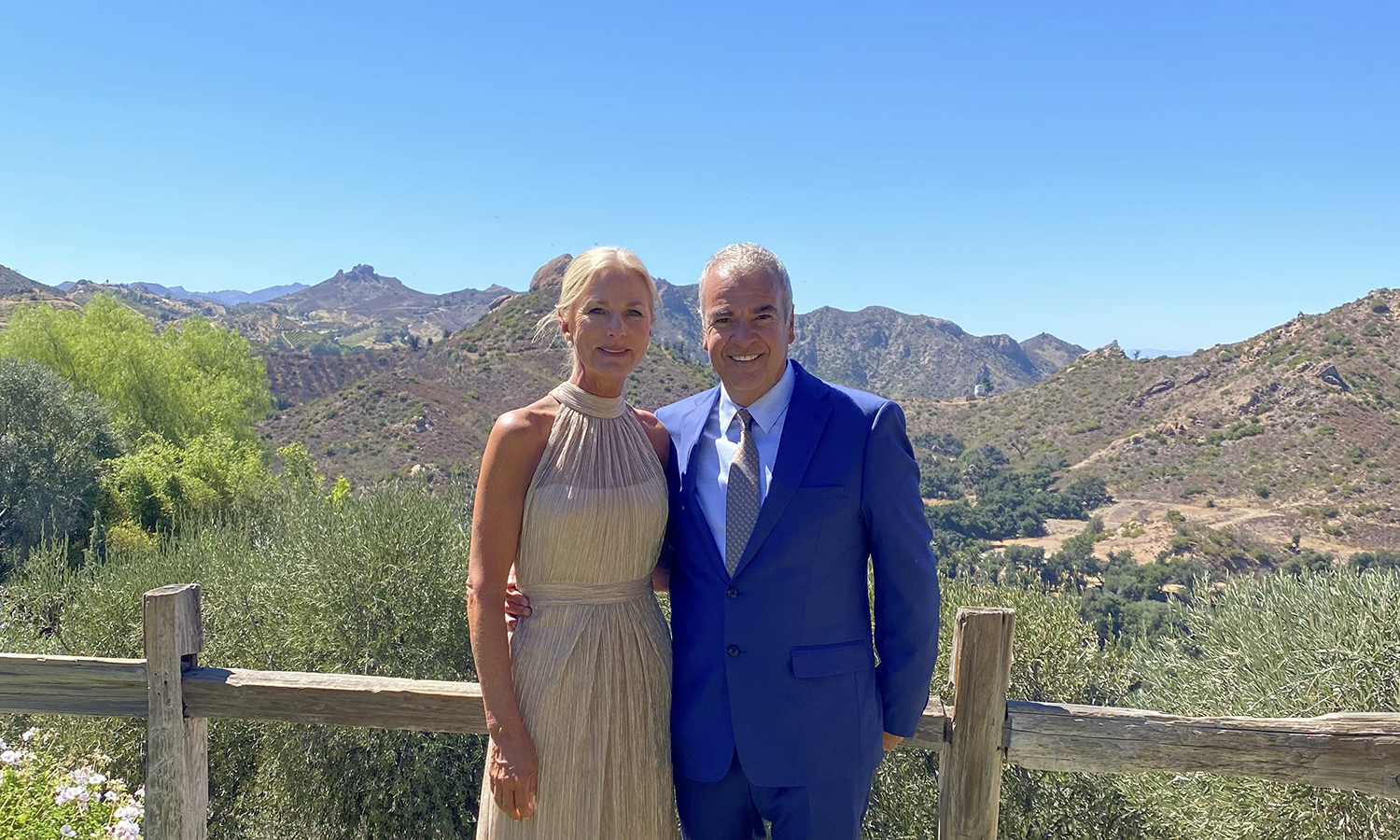
HWS News
23 June 2025 • Alums The Last Sweet Bite: A '99 Grad's Journey into the Cuisine of Conflict Zones
A debut book by Michael Shaikh ’99 was released on June 24 titled The Last Sweet Bite: Stories and Recipes of Culinary Heritage Lost and Found.
A double major in Asian Studies and Political Science at Hobart and William Smith, Michael Shaikh ’99 draws on two decades as a human rights investigator in global conflict zones to examine the fragile bond between cuisine and culture in his debut book, The Last Sweet Bite: Stories and Recipes of Culinary Heritage Lost and Found. Published by Crown (2025), a branch of Penguin Random House, the book weaves together travel writing, memoir and cookbook to show how war, displacement and genocide threaten to erase beloved food traditions, and how communities fight to preserve them.
After 9/11, Shaikh pivoted to a career in diplomacy and human rights, working for organizations like the International Crisis Group, Human Rights Watch and the United Nations. His fieldwork took him to conflict zones in Afghanistan, India, Lebanon, Mali, Myanmar, Pakistan, Sri Lanka, Syria and Thailand where he documented human rights abuses.
The idea for The Last Sweet Bite took shape during a dinner in Afghanistan, where a friend served a dish Shaikh never encountered. “Afghans were forgetting about this meal because of the violence,” he recalls. That realization — that food could be a fading language of memory and resilience — sparked the book’s central theme. Recipes, he found, were acts of resistance, passed on by those fearful of losing their culinary heritage.
Shaikh’s personal connection to this work runs deep. His father, who spoke Sindhi, never taught him the language. That disconnect, coupled with the knowledge that his father had lived through violent Partition of India and Pakistan, fueled his desire to reconnect with his cultural identity and language. At HWS, Shaikh wanted to study Urdu or Hindi, languages of the subcontinent. “There weren’t many non-European languages being taught at the time. But Japanese was. It’s an Asian language, and my family is from the Asian continent,” says Shaikh. “In that way, Japanese was where I felt the most included.”
Shaikh’s journey is one of layered identities, geopolitical awareness and cultural reclamation. While The Last Sweet Bite is the culmination of years of reporting, reflection and travel, he emphasizes that writing it has been “a process,” describing the discipline required as “nothing short of athletic.” He advises aspiring HWS writers to remember: “You’ve been a writer your entire life. I’m still trying to find my voice, and it’s still changing.”
Drawing inspiration from figures like Hanif Abdurraqib, LeBron James, and Ligaya Mishan Shaikh encourages students to see writing as an act of endurance and transformation, an ongoing commitment to curiosity, clarity and connection. He advises aspiring HWS writers to remember: “You’ve been writing most of your life. Try to find your voice but try not to get discouraged. I’ve written a book and I’m still trying to find my voice; it’s an ongoing process. But one that’s worthwhile.”



